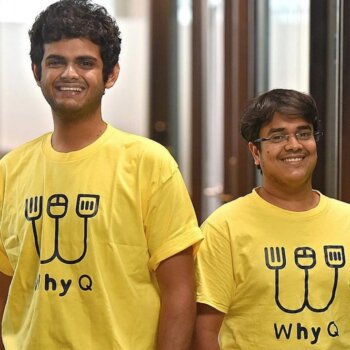When running a business, it may seem like there are never enough hours in the day. Tapping into the power of mornings, a time of day when there are less demands, might be the key to increasing your productivity.
For 15 years, Starbucks President Michelle Gaas has set her alarm for 4:30 a.m. to go running. Gretchen Ruben, popular author of The Happiness Project (Harper Perennial, 2011) wakes up at 6 a.m. and works for an hour before her family rises. Time-management expert Laura Vanderkam highlights what makes mornings special and how we can use them more efficiently in her book What The Most Successful People Do Before Breakfast (Portfolio Trade, 2013). Here are a few benefits to getting out of bed earlier.
You are less likely to get distracted in the morning. An entrepreneur’s day fills up fast. If you wait until the afternoon or evening to do something meaningful for yourself such as exercising or reading, you’re likely to push it off the to-do list altogether. “There are going to be reasons why you can’t tackle a personal priority at 4 p.m. — things have a lot less likelihood of coming up at 6 a.m.,” says Vanderkam.
You have more willpower early in the day. Even if you aren’t a morning person, you may have more willpower in the early hours than later in the day. “Willpower is like a muscle [that] becomes fatigued with over-use,” says Vanderkam. During the course of the day as you’re dealing with difficult people, making decisions and battling traffic, you use up your willpower, leaving you feeling depleted toward the end of the day.
Mornings give you the opportunity to set a positive tone for the day. If you’ve ever slept in past your alarm clock or forgotten your kids’ lunches on the counter, you know that starting off the day with a failure can bring down your mood and affect your productivity at work. Vanderkam says waking up earlier allows you to start the day with a victory and set the tone for a happier and more productive day.
If the thought of waking up at sunrise makes you cringe, Vanderkam recommends these four steps to transform even a habitual night owl into a morning person.
1. Keep a time journal. Vanderkam says one of the reasons people say they don’t like mornings is that they stay up too late. She recommends keeping a time journal for a week to show where you may be using your time inefficiently. Vanderkam finds when many self-professed night owls look at their time journals, they often find they aren’t spending their evening hours productively or doing anything particularly enjoyable.
2. Imagine your perfect morning. Imagine what you would do if you had an extra hour in the day. Would you exercise? Read the newspaper rather than simply skimming the headlines? “[Getting up earlier] isn’t about punishing yourself. You will not get out of bed if you don’t have a good reason to do it,” says Vanderkam.
3. Plan your morning. Once you have decided what you want to do with your extra time, plan how to execute it, and set as much up as possible the night before. For example, if you want to exercise in the morning, lay out your clothes the night before, or gather the ingredients for your breakfast.
4. Build the habit slowly. Vanderkam says you will likely hit the snooze button and sleep in if you try to switch your habits drastically. So instead of setting your alarm for 5 a.m. when you normally get up at 7: 30 a.m. set the alarm for 10 minutes earlier each day. To make sure you don’t lose sleep, go to bed 10 minutes earlier each night. If you have trouble hitting the sack on time, set a bedtime alarm.



























